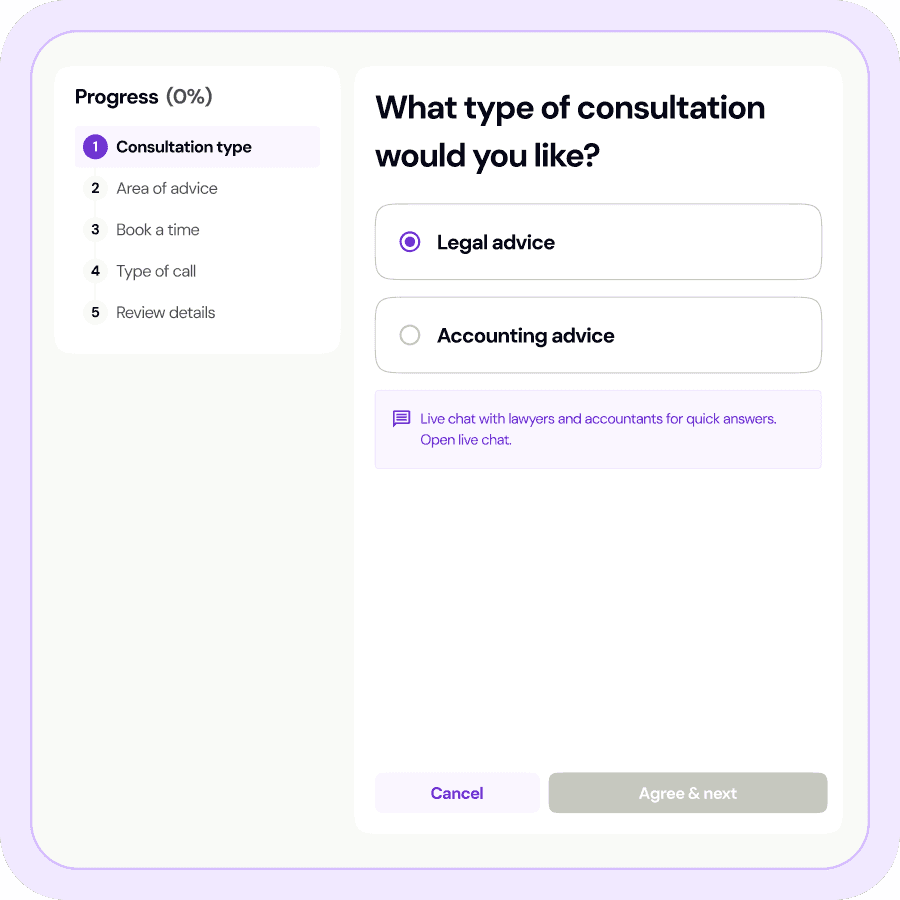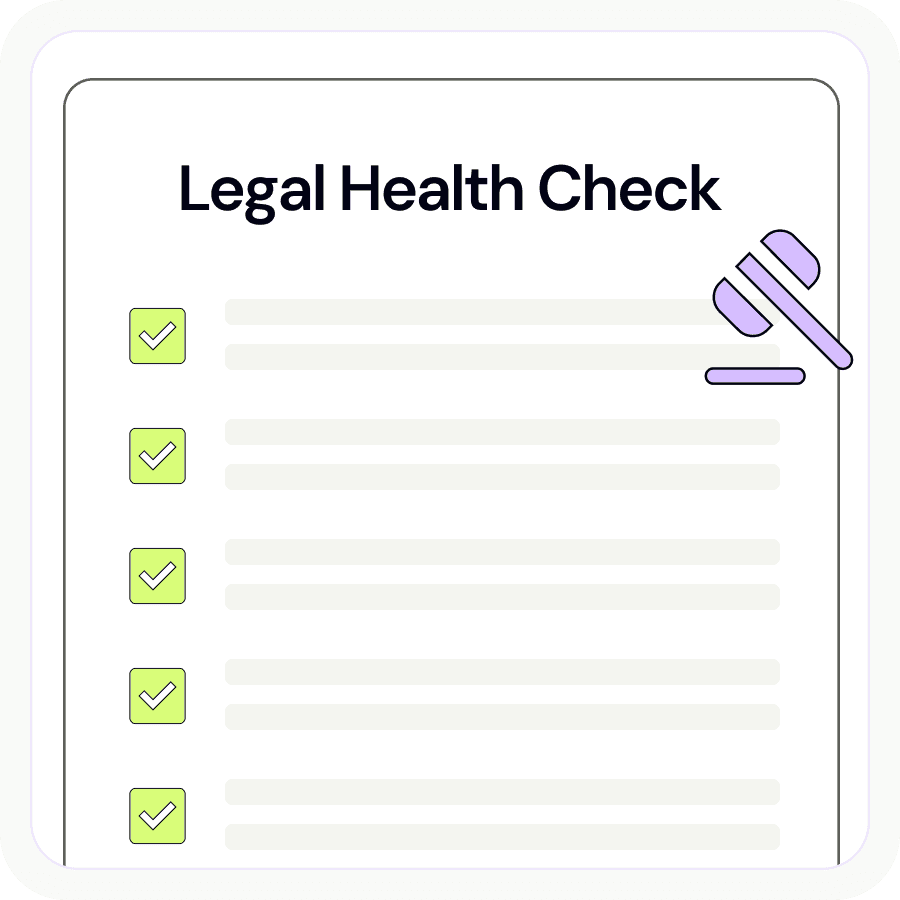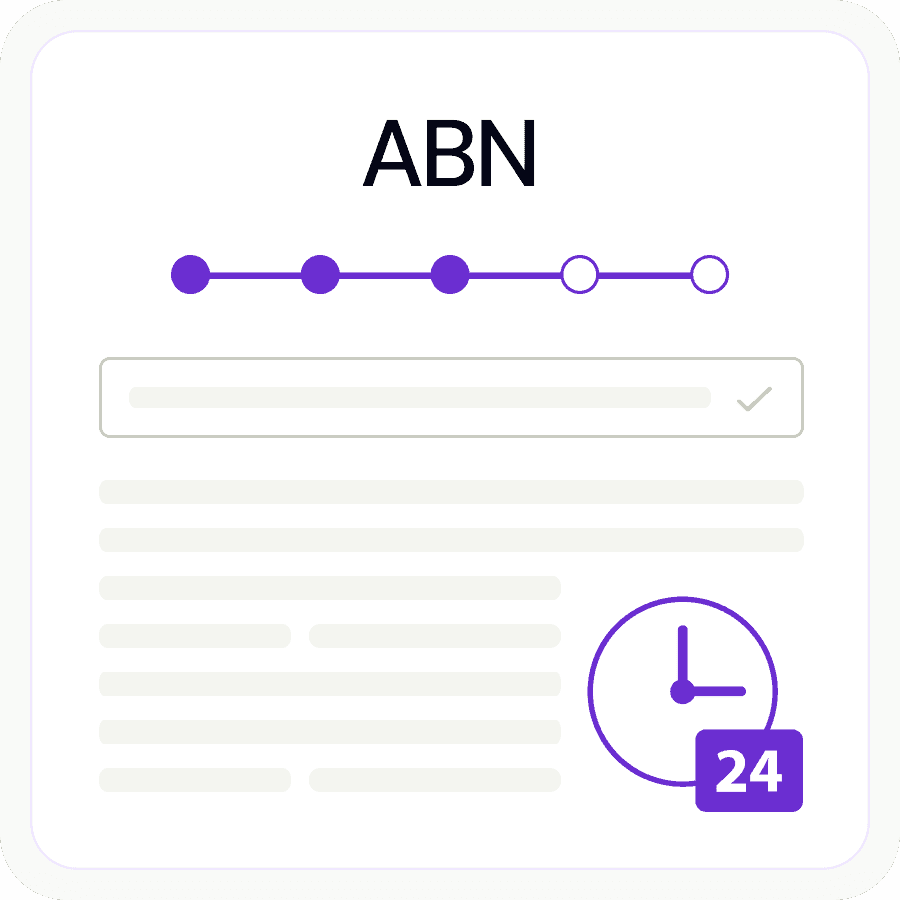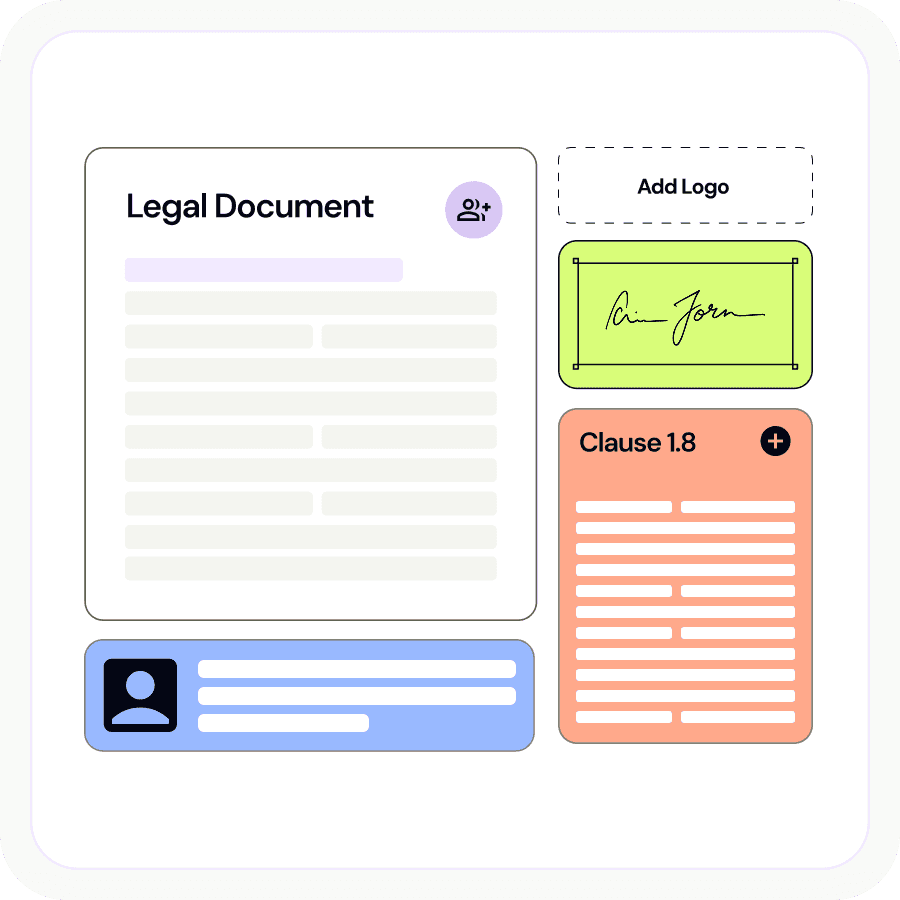Blogging offers businesses and individuals a powerful pathway to building brand authority, generating income, and even creating full-time business opportunities. From driving traffic to your site to establishing your industry voice, a blog can be a game-changer for any small business.
However, running a blog as a business requires more than great writing and engaging content. You’ll need solid planning, smart marketing, and crucially, a proper legal framework to ensure compliance and long-term success.
When it comes to marketing and content strategy, you can turn to platforms like HubSpot, which excel in guiding creators on how to craft compelling content, build engagement, and grow followers. Their insights on turning a blog into a marketing powerhouse are second to none.
But if you want to take your blog beyond marketing and generate income, you’ll need to get the legal side right, too. That’s where Lawpath steps in. We offer a legal-first approach for bloggers and creators in Australia who want to turn their passion into a viable, compliant business.
To help you get started, we’ve put together this guide that will walk you through the blog legal requirements in Australia. Let’s dive right in!
Table of Contents
Why start a business blog in Australia?
Starting a business blog in Australia offers multiple benefits. First and foremost, blogging builds your authority in a niche or industry. You can showcase expertise, build trust with your audience, and become a go-to source for information or advice.
Beyond authority, a well-run blog can generate diverse income streams. These include:
- Display advertising
- Affiliate marketing
- Sponsored content
- Selling digital or physical products
- Offering services like coaching or consulting.
Importantly, a blog is a long-term business asset. Your content and brand reputation grow over time and can generate ongoing revenue.
No wonder there is a rise in the number of content creators and side hustles in Australia. More Australians seek flexible alternative incomes or want to transform hobbies into serious business endeavours.
Managing your blog “as a business” rather than just a hobby creates distinct advantages: tax deductions for expenses, the ability to protect your intellectual property, and more professional income reporting. This positioning also makes it easier to access funding, partnerships, and commercial opportunities.
So, are you ready to start a blog business? Here is our step-by-step legal and practical guide!
Step 1 – Define your niche and audience
The first step to starting a successful business blog is to clearly define your niche and target audience. Narrowing your focus increases your chances of cutting through the noise and attracting a loyal following.
So, what are some of your business blog ideas? For example, instead of blogging about general finance, you might specialise in budgeting tips for new parents. Other niche examples include tech product reviews for gamers, fashion advice for sustainable consumers, or fitness plans for busy professionals.
Choosing the right niche is important because it influences your monetisation strategy. For instance, a tech review blog may earn through affiliate commissions on gadgets, while a parenting blog might generate income through sponsored posts from family brands or by selling eBooks.
Step 2 – Choose a platform and domain name
Once you’ve decided what you’ll focus on, you’ll need to choose the platform where you’ll be producing business content.
Think about what features you want your blogging platform to have that will enable you to communicate your business objective. Some examples of popular blogging platforms include: WordPress.org, WordPress.com, Wix, Gator, Squarespace and Blogger by Google.
Here are some things you want to consider, especially if you’re a beginner to the business blogging game:
- User friendliness: Ask yourself if the blogging platform is easy for you to use or learn. Some platforms require coding skills, so if you’re not comfortable with coding just yet, you may want to choose a platform that doesn’t require coding knowledge or ability.
- Features: Check which features the platform offers. Make sure you are forward-thinking and the platform allows you to scale with your business growth. Also, consider how you plan to monetise your blog — can you do that using the platform you chose?
- Cost and pricing: It’s important to think about whether the blogging platform is cost-effective. Bear in mind that while some platforms are free, others do incur monthly and yearly fees, though they might offer more features as a trade-off.
Another vital consideration is your domain name because it’s vital for branding and search engine optimisation (SEO). It should be memorable, reflect your niche, and preferably be a .com.au domain to signal your Australian focus.
Before finalising your blog’s name, you should check for trademark conflicts. You can do so by searching the Australian Trademark Register to ensure your blog name isn’t infringing on protected brands, helping you avoid legal issues before they arise.
Find your business blog’s purpose
After making the crucial decision of what blogging platform is the right fit for your business, finding your blog’s purpose and area of specialisation is key to driving success. This will help you create content that will increase consumer engagement through your online platform.
Finding your ‘why’ is the most important business move you’ll ever make. This applies to your blog as well. Illustrating your business’s ‘why’ and your objectives will allow you to make your business mark in the world of blogging.
Here are a few things to ask yourself:
- What is my business brand all about? Or, if you’re promoting an existing business, how can I best illustrate the existing purpose of my brand?
- Do I want my blog to show certain skills or the area of expertise I specialise in? Or a combination of both?
- Is the purpose of my blog to boost my business’s online presence or SEO rating on Google?
Answering these questions will help you fine-tune your content planning and your blog business model.
Step 3 – Register your blog as a business
To run your blog as a legitimate business, you’ll need to choose a business structure and register it. In Australia, common options include operating as a sole trader, registering a company, or forming a partnership.
- Sole trader: This is the simplest and most common form, suitable for solo bloggers. You’ll usually register for an Australian Business Number (ABN).
- Company: This is more complex and expensive to set up, but it offers limited liability protection and can be better for growth.
- Partnership: This option is suitable if you collaborate with others, but requires clear partnership agreements to avoid disputes.
For a blog, ABN requirements are the same as for any other business that earns income. If you choose the company structure, you’ll also need to register with the Australian Securities and Investments Commission (ASIC).
Lawpath provides quick, user-friendly tools to register your ABN or company online. This service is generally faster, easier, and less costly than traditional lawyers or accountants. You get legal certainty from the outset, allowing you to focus on your content.
Step 4 – Take care of legal essentials
Once registered, your business blog still needs to cover certain legal bases to protect itself and comply with regulations.
- Website Terms and Conditions: Set the rules for visitors using your site to limit your liability.
- Privacy Policy: Required by the Australian Privacy Act if you collect personal data (e.g., from newsletter signups).
- Disclaimers: Important if you provide financial advice, product reviews, or sponsored content.
- Copyright & IP Protection: Trademark your brand, and protect original blog content to prevent copying.
- Contracts: Use clear written agreements when working with freelancers, designers, or advertisers.
You can access Lawpath’s affordable legal document templates tailored for bloggers and small businesses. Having these documents in place safeguards your blog’s future and strengthens your professional image.
Step 5 – Plan how to monetise your blog
To generate income, you must strategise how your blog will make money. It’s a good idea to draft a blog business plan as you think about ways of monetising your blog. Here are some strategies to consider:
- Advertising: Display ads via Google AdSense or direct partnerships.
- Affiliate marketing: Earn commissions by promoting products.
- Sponsored posts: Collaborate with brands for paid content.
- Selling products or services: Sell digital products like eBooks or courses, or physical merchandise.
- Offering services: Provide consulting, coaching, or workshops.
Remember, as your blog grows, so do tax obligations. If your turnover exceeds the Goods and Services Tax (GST) registration threshold (currently $75,000), you need to register for GST and submit regular Business Activity Statement (BAS) reports.
It’s also critical to accurately report income and claim business expenses when lodging tax returns.
Step 6 – Create and promote your content
It’s not enough to just set up a blog and a robust legal framework. Now, you need to create content that resonates with your target audience. Here are some crucial business blogging tips:
- Maintain a consistent posting schedule.
- Optimise posts for SEO to attract organic traffic.
- Build an email list to foster loyal readership.
- Promote via social channels like Instagram, Facebook, TikTok, or LinkedIn, depending on your niche.
- Collaborate with other bloggers or influencers to expand your reach.
Remember, it’s not about one or the other – content or business. You’ll need to find harmony between the two so you can optimise both reach and monetisation.
Grow your audience
Groth is key when it comes to monetising content. So, how do you grow your blog’s following? You’ll need to really get in touch with your audience and create a connection through your blog posts.
You might want to start by identifying your readers’ demographics, such as their age, gender, and profession. Who is it that you are talking to through your writing?
In addition, you want to be able to provide them insight or be the solution they’re looking for. So start thinking about what problems your audience is facing and how your company can provide a solution to their needs.
Another key tip is to find out where your audience sources information and how much time they spend online. This will give you a better idea of when to post business content and maximise blog traffic.
Share your blog content on multiple platforms
Once you’ve put some blog content out there, the next step is to generate even more site traffic through the power of social media marketing. Using social media correctly can direct new customers or clients to your blog and to your business’s goods and services.
First, you’ll need to know which platforms your followers are on. For example, if your audience frequently uses Instagram, then consider sharing your blog posts on your Instagram business page. Likewise, you might need to use platforms like TikTok, LinkedIn, Facebook, or a combination of a few different ones.
Then, you’ll need a consistent social media strategy and a clear voice that aligns with the purpose of your blog and business. That doesn’t mean posting the same thing across all platforms, but you will need to make sure your readers recognise your authorship no matter where you post.
Remember that any time you collect personal data to activate your various growth platforms, you’ll need to have a Privacy Policy and adhere to Australia’s data sharing laws.
How Lawpath can help you start your blog business
Lawpath is the legal and compliance backbone for Australian businesses. Through our platform, you can:
- Quickly register your business as a sole trader or company.
- Access customised legal document templates (terms & conditions, privacy policy, disclaimers) tailored for bloggers.
- Get affordable legal advice if disputes or issues arise.
- Check for trademark conflicts to protect your brand identity.
We efficiently handle legal essentials, so you can focus on what matters most — creating and growing your blog.
FAQ
Is blogging considered a business for tax purposes?
Yes! If you’re earning income regularly from your blog, the Australian Tax Office may treat it as a business, which means you’ll need to report earnings and may be eligible for deductions.
What legal requirements do blogs have in Australia?
Blogs that collect personal data must have a privacy policy. Also, if you provide advice or accept sponsored content, you should include terms and disclaimers and ensure compliance with intellectual property laws.
Do I need to register my blog as a business?
If you’re making money, you’ll need some sort of registration. Many bloggers start as sole traders by registering an ABN. However, registering a company offers liability protection and is better for growth or partnerships. It depends on your goals.
Transform your blog into a thriving business
Running a small business, including a blog that generates income, comes with exciting opportunities and important responsibilities. Remember, though, starting your business on the right legal foot is essential to long-term success.
Every thriving business — whether an online blog or a bricks-and-mortar shop — benefits from professional guidance and careful management of its legal obligations. If you’re ready to take the plunge, Lawpath will be there from day one. Get in touch with us today!











